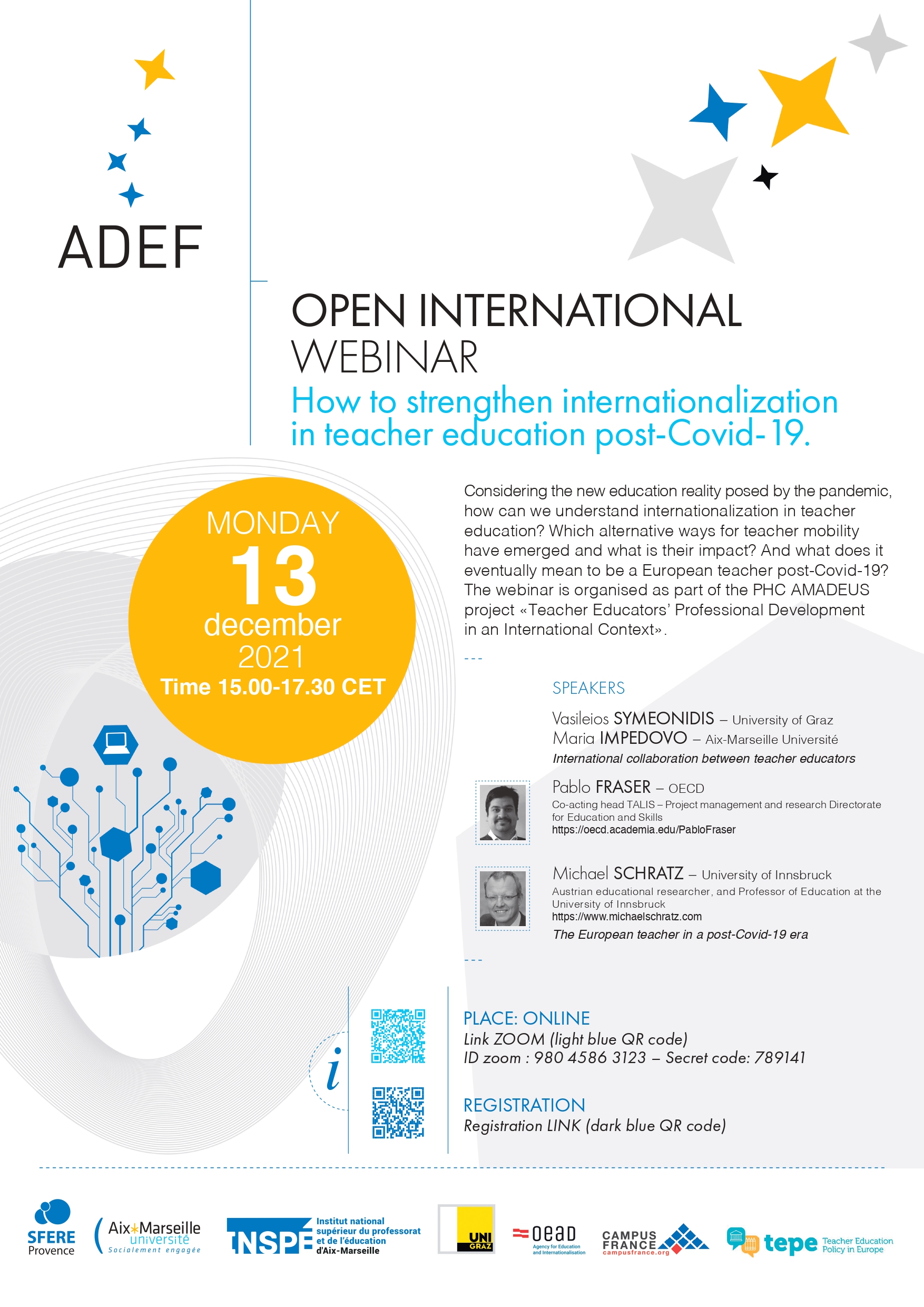The Covid-19 pandemic has posed new challenges to the internationalisation of teacher education, which over the past decade became a priority for policymakers in the context of international agreements, such as the Bologna Declaration. Physical mobility has been halted and a “forced” transition from face-to-face to remote teaching has occurred. However, this global disruption has also triggered an incubation phase for new things, so that education researchers are referring to the crisis as “an opportunity of the century” (Schratz, 2020). Ideas such as blended mobility and virtual exchange programmes are increasingly promoted as alternative options for international learning, as demonstrated also by the priorities of the Erasmus programme for the period 2021-2027. Considering this new reality posed by the pandemic, how can we understand internationalisation in teacher education? Which alternative ways for teacher mobility have emerged and what is their impact? And what does it eventually mean to be a European teacher post-Covid-19?
This webinar aims to discuss these questions from the perspective of international experts in the field of teacher education, as well as from the perspective of student teachers who participated in a virtual exchange programme between Austria and France. The webinar is organised as part of the PHC AMADEUS project "Teacher Educators’ Professional Development in an International Context", funded by CAMPUS FRANCE and the Austrian Agency for Education and Internationalisation (OeAD) and supported by the Teacher Education Policy in Europe (TEPE) network.
